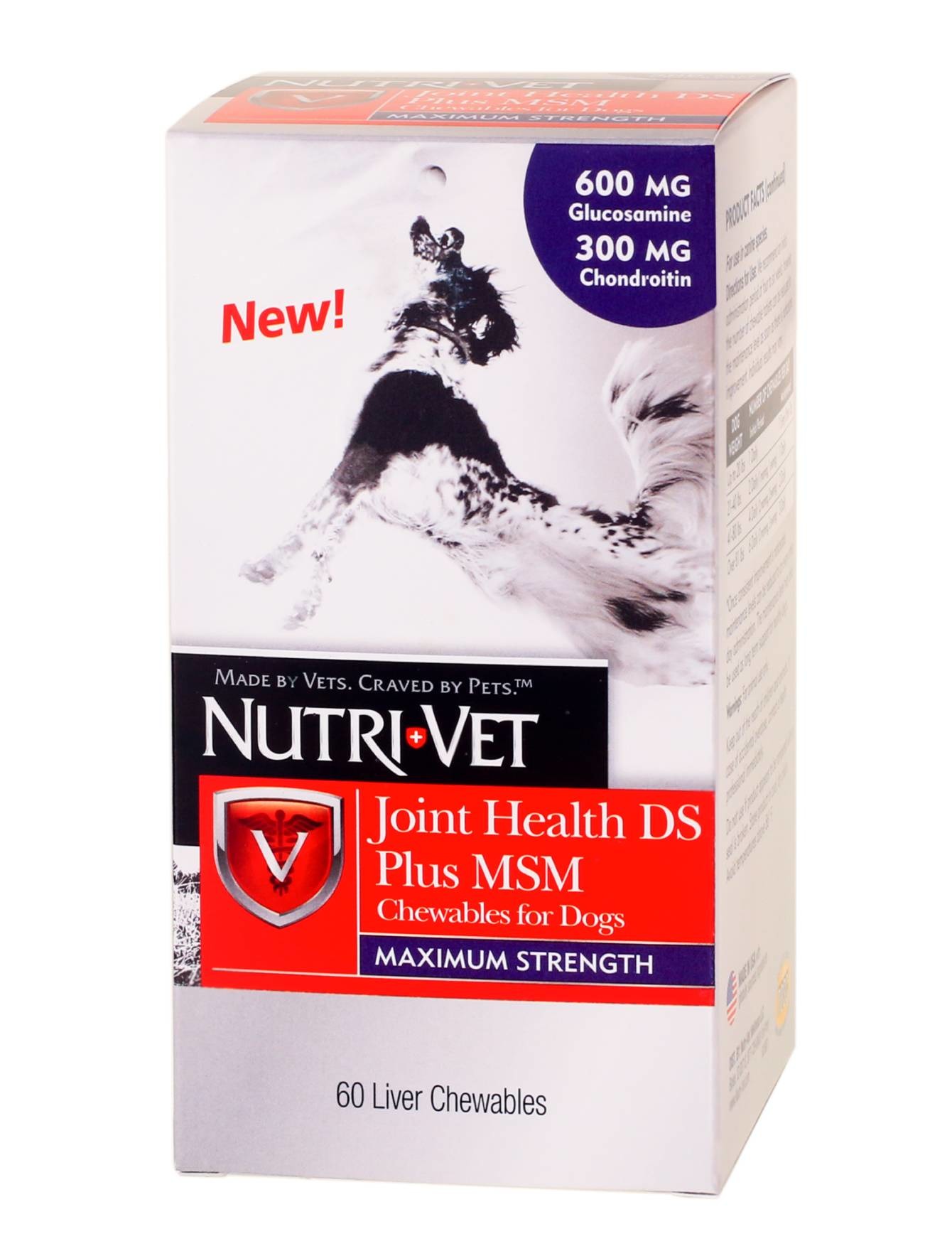Whether you’ve just adopted a puppy or had your dog for years, you may have wondered about the value of giving your dog a vitamin.
Is it necessary to give your dog vitamins? The truth is - many dogs benefit from vitamins, and in some cases, they can even be life-saving.
In this article, we will discuss why dogs need vitamins, the different types of dog vitamins, tips on how often to give them to your dog, the Cost of dog vitamins, the top-recommended dog vitamins and more.
Let’s get into it.
Does your dog need vitamins?

A well-balanced diet is typically enough to meet all of your dog’s nutritional requirements. In fact, if your dog is eating a well-balanced diet and isn't showing any signs of illness, vitamins or supplements are probably unnecessary.
Commercial dog foods are designed to meet the nutritional requirements of your canines. However, if you only feed your dogs home-cooked meals, you may not be able to provide them with all of the vitamins they require.
Therefore, vitamin supplements could come in handy here!
The different types of vitamins for dogs
Dogs require two types of vitamins:
- water-soluble vitamins (vitamin B-complex & vitamin C)
- fat-soluble vitamins (vitamins A, D, E, & K)

Water-soluble vitamins
Water-soluble vitamins help with the development of a dog's teeth, connective tissues and bones. Because they dissolve in water, the vitamins quickly get flushed out of the body, which requires regular replenishment or ‘top-ups’.
Unlike humans, dogs can naturally produce vitamin C in their livers. As such, there is no need to give them extra vitamin C unless prescribed by your veterinarian.
On the other hand, Vitamin B is not naturally produced and can only be obtained through food or supplements.
Fat-soluble vitamins
Fat-soluble vitamins are commonly found in animal fats, and when consumed, your dog's intestine absorbs and stores them for future use. However, too many of these vitamins can cause physical abnormalities, especially in the bones.
So, unless your veterinarian has prescribed them for a specific health condition, it's not a good idea to give your dog these supplements.
Here are some of the benefits of fat-soluble vitamins for dogs:
- Vitamin A: For eye health
- Vitamin D: Helps with calcium absorption, which aids in bone formation
- Vitamin E: Helps in the production of red blood cells in the body
- Vitamin K: Promotes blood clotting and the formation of protective scabs
So, should I give my dogs vitamins?
The short answer is yes, your dog can benefit from taking a vitamin supplement, but before you go out and buy a bag of chewables, consult with your veterinarian about which supplements are best for your dog and in what dosages.
The long answer is a little more complicated and depends on various factors such as your dog's age, breed, current diet, and whether or not your dog is showing signs of deficiency. In general, dogs can benefit from vitamin supplements, mainly if they exhibit vitamin deficiency symptoms.

Senior dogs, for example, can benefit from vitamins C and E, which act as antioxidants and aid in inflammation and memory problems. On the other hand, breeds like the Shih Tzu and Maltese can benefit from vitamin A for their eye issues, which are common in their breeds.
Signs of vitamin deficiency in dogs
There are four most common vitamin deficiencies to look out for in dogs:
1. Vitamin A (Beta-Carotene deficiency)
Signs to look out for:
- Itchy skin
- Rashes on the skin
- Frequent illnesses due to a weak immune system
- Weight loss
- Night blindness
Treatment:
- Include vitamin A-rich foods such as egg yolk, liver, carrots, and sweet potatoes in their diet
- Vitamin A supplements
2. Vitamin D
Signs to look out for:
- Joint inflammation
- Weak bones
- Painful walking
- Loss of muscles
- Stunted growth in young dogs/puppies
- Rickets disease
Treatment:
- Add vitamin D enriched foods like egg yolk, fatty meats and fish into their diet
- Vitamin D supplements
3. Vitamin E
Signs to look out for:
- Weakness in muscles
- Skin issues
- Reproductive issues
- Might cause cell damage
Treatment:
- Include vitamin E-rich foods in their diets, such as fatty oils and nuts. Peanut butter, almond butter, soybean oil, and sunflower oil are examples of fatty oils and nuts.
- Vitamin E supplements
4. Vitamin B2 (Riboflavin Deficiency)
Signs to look out for:
- Eyesores
- Eye lesions
- Flaky and dry skin
- Fainting
- Stunted growth
Weight loss
Treatment:
- Add vitamin B enriched foods like beef, fish, poultry, leafy greens and grains into their diet
- Vitamin B-complex supplements
How about multivitamins for dogs?

If your dog isn't showing any signs of vitamin deficiency, but you want to give them a supplement as a precaution, they can benefit from a multivitamin. These supplements provide a variety of essential nutrients, such as protein, fat, vitamins, and minerals.
Multivitamins are specially designed to provide a variety of nutrients that dogs may not otherwise get from their diet. They are often designed to help improve the health of your dog's skin and coat, joints and bones, digestion, and metabolism.
They come in tablet form and are simple to administer. They're an excellent way to ensure your dog gets everything they need in a single dose. You can get them at your local pet store, or veterinarian or even order them online. Continue reading to discover the top-recommended vitamins for your pets - don't worry, we'll also share the costs!
However, before giving them to your dog, remember to consult with your veterinarian.
Can I give human vitamins and multivitamins to my dog?

Sharing human vitamins with your canine companions is strongly discouraged by veterinarians.
Giving your dog human vitamins can be harmful because pets have different nutritional needs than humans. Too much calcium, for example, can be fatal to your pet.
As a result, you should avoid giving your dog any human vitamins.
Best dog vitamins in Malaysia (as recommended by local vets)
Sometimes, it can be hard to know which vitamins your dog needs. Luckily, there are various types of dog vitamins on the market. Which one is right for your dog? Let’s take a closer look at the different types of dog vitamins on the market so you can make an informed decision.
1. Zesty Paws 8-in-1 Multivitamin Supplement for Dogs

This multivitamin is designed to support eight aspects of your dog's health and wellness, including coat and skin health. It also contains probiotics and digestive enzymes for healthy, regular digestion, all in a chicken-flavoured soft chew.
Type: Soft Chews
Price: RM 136 - RM 139 (90 chews)
Suitable for: Dogs of all ages, breeds, and sizes
Nutritional Content: Full Spectrum of Vitamins & Minerals
Where to buy: Shopee | Lazada
2. Nutriplus Gel For Pets

If your dog does not like tablets or chews, this is a novel way to give them supplements. This gel is intended to be easily administered via syringe or by mixing it into their meals.
Nutriplus gel is a multivitamin supplement for dogs that boosts energy. It contains essential vitamins, minerals, and trace elements that are especially beneficial to young animals' growth. It can also aid in the maintenance of good skin and coat health.
Type: Gel
Price: RM 42 - RM 48.80 (120.5g)
Suitable for: Pregnant and lactating dogs, hunting dogs, working dogs, and animals recovering from illness or surgery
Nutritional content: Vitamin A, Vitamin D, Vitamin E, Thiamine HCI (B1), Riboflavin (B2), Pyridoxine HCL (B6), Cyanocobalamin (B12), Nicotinamide, Calcium Pantothenate, Folic Acid, Iron, Iodine, Manganese, Magnesium
Where to buy: www.petloverscentre.com.my | Shopee | Lazada
3. NaturVet Vita Pet Puppy Daily Vitamins

Look no further if you need a multivitamin for your puppy! NaturVet Vita Pet Puppy Daily Vitamins is a veterinarian-formulated supplement containing vitamins and minerals essential for growing puppies. The gradual release ensures that nutrients are properly absorbed.
This product is also available for adult dogs and contains glucosamine for joint support.
Type: Tablets
Price: RM55 - RM 60 (60 tablets)
Suitable for: Puppies
Nutritional content: Full Spectrum of Vitamins & Minerals
Where to buy: www.perromart.com.my | Shopee | Lazada
4. Augustine's Approved SuperBoost Supplement for Dogs

Augustine's SuperBoost is an organic supplement made entirely from whole foods specially formulated for dogs.
This supplement is suitable for all dogs and can be added to raw, dry, canned and homemade meals.
The primary benefits of this supplement include promoting normal, healthy growth and development in your dogs. It also supports healthy skin, a shiny coat, and strong nails. This supplement encourages digestion and nutrient absorption, which can help your pet's gut health.
No matter how well you currently feed your dog, Augustine's SuperBoost is an excellent addition to any canine diet.
Type: Tablets
Price: RM119 (220g) or RM 165 (440g)
Suitable for: Dogs of all ages
Nutritional content: Flaxseed Meal, Barley Grass, Arrowroot, Sesame Seeds, Chia Seeds, Lecithin, Turmeric, Maca, Wakame, American Ginseng (aged 6 years)
Where to buy: www.perromart.com.my | Shopee | Lazada
5. Grizzly Salmon Plus for Dogs

With this salmon, whitefish and pollock oil blend supplement, you can give your dog a boost of skin and coat-supporting omega-3s. This fish oil for dogs is made from wild-caught salmon, whitefish and pollock and contains a high concentration of DHA, EPA, ALA and other omega fatty acids for skin and coat support. It also improves joint health.
Type: Oil
Price: RM45 to RM 49.50 for 118ml or RM218 for 946ml
Suitable for: Dogs of all ages
Nutritional content: Blend of wild-caught Alaskan salmon, pollock, and whitefish oils
6. Nutri-Vet Joint Health Plus MSM Chewables for Dogs

Joint Health liver flavour chewables from Nutri-Vet contain balanced levels of glucosamine, chondroitin, and MSM to help maintain healthy canine joint function and connective tissue.
HCL glucosamine is the primary building block for cartilage development, while chondroitin sulphate protects and slows the degradation of existing cartilage.
MSM is an anti-inflammatory agent that contains sulphur, which is necessary for cartilage formation. In addition, manganese is required for biochemical reactions that aid in cartilage formation.
With this combination, your dog will have the healthiest hips and joints!
Type: Soft chews
Price: RM120 (60 tablets)
Suitable for: Adult dogs of all sizes
Nutritional content: Glucosamine Hydrochloride (from shellfish), Chondroitin Sulfate (porcine trachea), Methylsulfonylmethane (MSM), Manganese (Manganese Gluconate), Cellulose, Liver Meal, Magnesium Silicate, Magnesium Stearate, Natural Flavor, Silicon Dioxide, Stearic Acid
Where to buy: www.perromart.com.my
Conclusion

After reading this article, we hope you better understand the importance of vitamin supplements for your dogs. If you're ready to start giving your dogs supplements, make an appointment with your veterinarian and discuss the product you'd like to introduce to your pets.
If your dog frequently exhibits signs of vitamin deficiency, pet insurance may be a wise investment.
However, Oyen Pet Insurance does not cover supplement-related vet bills. They are considered preventive treatments, which fall under the insurance policy's exclusion areas.

















